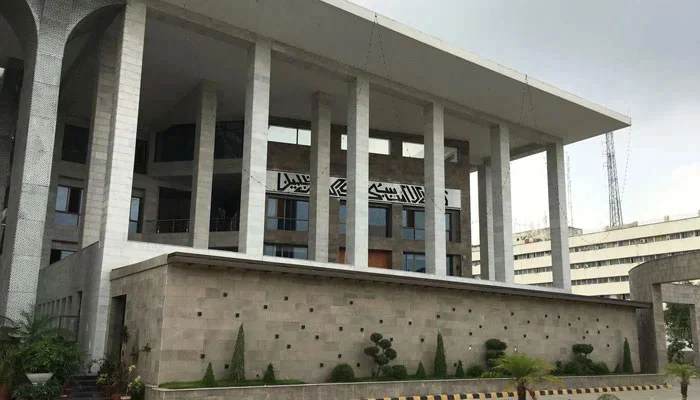The Islamabad High Court (IHC) recently responded to a letter from Faisal Vawda regarding Justice Babar Sattar’s citizenship. This development has attracted attention, raising questions about the judiciary’s independence and the adherence to legal procedures.
Background of the Controversy:
The controversy stems from allegations questioning Justice Babar Sattar’s citizenship status, which have been brought forward by Faisal Vawda, a prominent political figure in Pakistan. These allegations have sparked a debate surrounding the eligibility criteria for holding judicial office in the country.
IHC’s Response to Vawda’s Letter: In response to Vawda’s letter, the IHC has taken cognizance of the matter and initiated appropriate proceedings to address the allegations. This demonstrates the judiciary’s commitment to upholding transparency and accountability within its ranks.
Implications for Judicial Independence:
The IHC’s response underscores the importance of maintaining the independence of the judiciary and ensuring that legal processes are followed diligently. It sends a message that no one, regardless of their political affiliation or influence, is above the law.
Challenges to Judicial Integrity:
However, the controversy surrounding Justice Babar Sattar’s citizenship highlights the challenges facing Pakistan’s judicial system, including issues related to integrity, transparency, and public trust. It is crucial for the judiciary to address these challenges proactively to safeguard its credibility.
Impact on Public Perception:
The controversy has also impacted public perception of the judiciary, with concerns being raised about the integrity and impartiality of judicial appointments. It is essential for the judiciary to address these concerns transparently to maintain public trust and confidence.
Legal Procedures and Due Process:
As the IHC proceeds with its investigation into Justice Babar Sattar’s citizenship status, it is imperative for all parties involved to adhere to legal procedures and due process. Any findings must be based on concrete evidence and impartial analysis to ensure fairness and justice.
Political Ramifications:
The controversy surrounding Justice Babar Sattar’s citizenship has political ramifications, with various stakeholders seeking to exploit the situation for their own agendas. It is essential for political actors to refrain from politicizing the issue and allow the judicial process to unfold independently.
Protecting the Integrity of the Judiciary:
Ultimately, the integrity of the judiciary must be protected at all costs, as it is the cornerstone of a democratic society. Any attempts to undermine the independence and credibility of the judiciary must be met with firm resistance to uphold the rule of law.
The IHC’s response to Faisal Vawda’s letter regarding Justice Babar Sattar’s citizenship underscores the judiciary’s commitment to upholding transparency and accountability. It highlights the importance of adhering to legal procedures and due process to safeguard the integrity of the judiciary. As the investigation unfolds, it is crucial for all parties involved to prioritize the interests of justice and uphold the rule of law.



